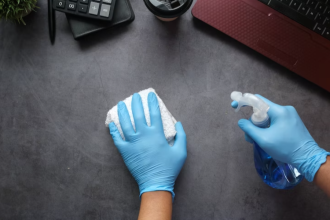Massachusetts summers should be about cookouts, outdoor games, and relaxing evenings on the porch—not itchy legs and swatting at your face every few seconds. Yet every year, homeowners in places like Boston Metro South, Franklin, and Framingham find themselves battling mosquito infestations that seem to grow worse by the week.
This blog explores everything you need to know about protecting your property, your family, and your sanity from mosquitoes. From professional treatment options to DIY prevention strategies, here’s how to win the war on mosquitoes in your own backyard.
Why You’re Probably Searching for Mosquito Control
Mosquitoes are more than just a summertime nuisance—they’re fast breeders and incredibly resilient. One minute you’re enjoying your patio, and the next you’re sprinting inside, covered in bites. If you’re frantically searching for mosquito control near me, it’s likely due to:
- Frequent mosquito bites even in broad daylight.
- Visible standing water or damp areas around your yard.
- Mosquitoes breed indoors, especially near windows or basements.
- Neighborhood proximity to wooded or marshy areas, common in many Massachusetts communities.
Mosquito populations explode after just a few days of rain and warmth. That means timely and targeted action is key—something local experts are equipped to handle quickly and effectively.
Mosquito Management Is About More Than Comfort
Everyone hates getting bitten, but the impact of mosquitoes goes far beyond the surface:
- Disease risk: Mosquitoes in the northeastern U.S. can carry West Nile Virus and Eastern Equine Encephalitis (EEE).
- Allergic reactions: Some people react more severely to bites, resulting in swelling, rashes, or even secondary infections.
- Quality of life: Constant buzzing, itching, and indoor confinement can seriously affect your summer experience.
Investing in mosquito management isn’t just about convenience—it’s a proactive move to safeguard your family’s health and well-being.
The Lifecycle of a Mosquito—and Why It Matters
Understanding the mosquito lifecycle helps explain why quick fixes often fail:
- Egg – Laid in standing water and can hatch in 48 hours.
- Larva – Lives in water, feeding and developing.
- Pupa – The transition stage; doesn’t eat but still needs water.
- Adult – Emerges from water ready to feed and breed.
Because this process can take as little as 5–7 days, your mosquito problem can go from mild to severe in less than a week. That’s why effective mosquito management focuses on eliminating mosquitoes at every life stage—not just the adults.
How Professional Mosquito Control Works
Looking into professional mosquito control? Here’s what you can expect from a reputable service:
- Initial property inspection to identify breeding sites and high-risk zones.
- Customized treatment plan that includes barrier sprays, larvicide application, and foliage treatments.
- Scheduled follow-ups every 2–3 weeks for maximum effectiveness.
- Pet and family-friendly options, using EPA-registered products safe for residential use.
Professionals don’t just treat—they also educate. You’ll learn what habits to adopt to help keep mosquitoes away for good.
What You Can Do: Effective DIY Control
While pros do the heavy lifting, your daily habits can support their efforts. Try these homeowner-friendly strategies:
- Dump standing water in flower pots, tarps, toys, birdbaths, and gutters.
- Trim overgrown vegetation where mosquitoes hide during the day.
- Install fans in outdoor seating areas—mosquitoes hate wind.
- Use yellow “bug lights” to make your home less attractive to insects.
- Keep your lawn mowed and your soil well-drained.
Mosquitoes only need a bottle cap’s worth of water to reproduce. Vigilance is everything.
Mosquito-Proofing Specific Areas of Your Property
It’s not just your lawn that needs attention. Think through how mosquitoes interact with:
Outdoor Structures
- Decks and patios with shaded, humid corners are prime hangouts.
- Check under furniture and awnings for moisture buildup.
Gardens
- Mulch and dense foliage retain moisture.
- Watering schedules that leave puddles can encourage breeding.
Entryways
- Fix broken screens or doors that let bugs sneak in.
- Use essential oil diffusers near entry points for light deterrence.
By being proactive in multiple zones, your mosquito management efforts will go much further.
Mosquito Season in Massachusetts: When to Act
Timing is everything when it comes to mosquito defense:
- Spring (April–May): Begin treatments early to kill larvae before they mature.
- Summer (June–August): Maintain frequent applications to control peak populations.
- Fall (September–October): Don’t stop too soon—mosquitoes are active until the first hard frost.
Early investment means fewer bites, lower risks, and more enjoyable outdoor living all season.
Choosing the Right Mosquito Management Provider
Not all services are created equal. Here’s what to look for when vetting companies:
- Local experience: Providers familiar with the Boston Metro South and MetroWest regions understand unique regional challenges.
- Transparency: Clear explanations of what’s being applied, how long it lasts, and when to re-treat.
- Flexible scheduling: Seasonal or one-time services depending on your needs.
- Reviews and references: Look for testimonials from customers in your area.
A search for mosquito control near me should lead you to trustworthy pros who prioritize your safety and comfort.
Don’t Let Mosquitoes Rule Your Yard This Summer
If you’re tired of being driven indoors by buzzing nuisances, you’re not alone. Massachusetts residents in towns like Franklin, Framingham, and the Boston Metro South know how fast mosquito problems can escalate. Fortunately, searching for mosquito control near me is the first step to reclaiming your outdoor spaces. Whether you’re interested in full-service seasonal protection or just want to supplement with DIY tactics, the right mosquito control strategy can make a world of difference. Stay ahead of the swarm and enjoy your backyard.
*Sponsored Blog Post*














